Birth Order Personality Traits: Did you know that your birth order in your family can directly influence your personality, and even shape it to a large extent? How does birth order affect personality?
You’re going on a family road trip with your adult siblings. Which of these three scenarios sounds most like you?
1. You’ve been planning it for weeks, secured the hotel rooms, made restaurant reservations, had the car’s oil changed, and have a tank full of gas — and you’ve mapped out rest stops along the way.
2. You’ve been rushing all morning trying to get things together, eventually throwing snacks and clothes haphazardly into your bags at the last minute. If you’re the one driving, you hope you can find a gas station and fill up your half-empty tank on the road.
3. Family trip? Sounds like fun! You’re just along for the ride with no pre-planned contributions except your entertaining funny stories and jokes. You enjoy the snacks your older siblings have packed in the car, and you realize you might need to buy a weather-appropriate coat when you arrive at your destination.
If the first scenario sounds familiar, you are likely the eldest child.
If the second scenario describes you well, you are probably the middle child.
If you relate the most to the third scenario, then you are most likely the baby of the family.
Birth Order Does Matter
Some researchers believe birth order is as important as gender and almost as important as genetics. It gets back to the old nurture vs. nature business. In my experience as an educator and a researcher, I know that no two children have the same set of parents, even though they live in the same family. Why?
Because parents are different with each of their children, and no two children ever take the same role. For example, if you are the caretaking child, then that role is taken and your sibling will pick another role in the family, perhaps that of the achiever.
We Are Different Parents With Each Child
As the parent, you remember your first child well: They were the ones you watched to make sure they were breathing in their crib, the baby you breastfed and/or sterilized bottles for and carried most of the time. That child is the only child that will ever have his or her parents completely to his/her self; all other children have to share.
If you think about it, firstborn children enter a family of adults who are proud of their every progress and frightened by every potential injury. The child caught in the middle is often dominated by the firstborn, who is older, wiser, and more competent.
By the time the baby arrives, parents are usually worn down, worn out, and less likely to micro-manage. By now, you know your baby is not going to break, and therefore, you can be more flexible in both attention and discipline. As a result, your baby learns early on to seduce and entertain.
Birth Order Personality Traits: The Achiever, The Peacemaker, and The Life of The Party
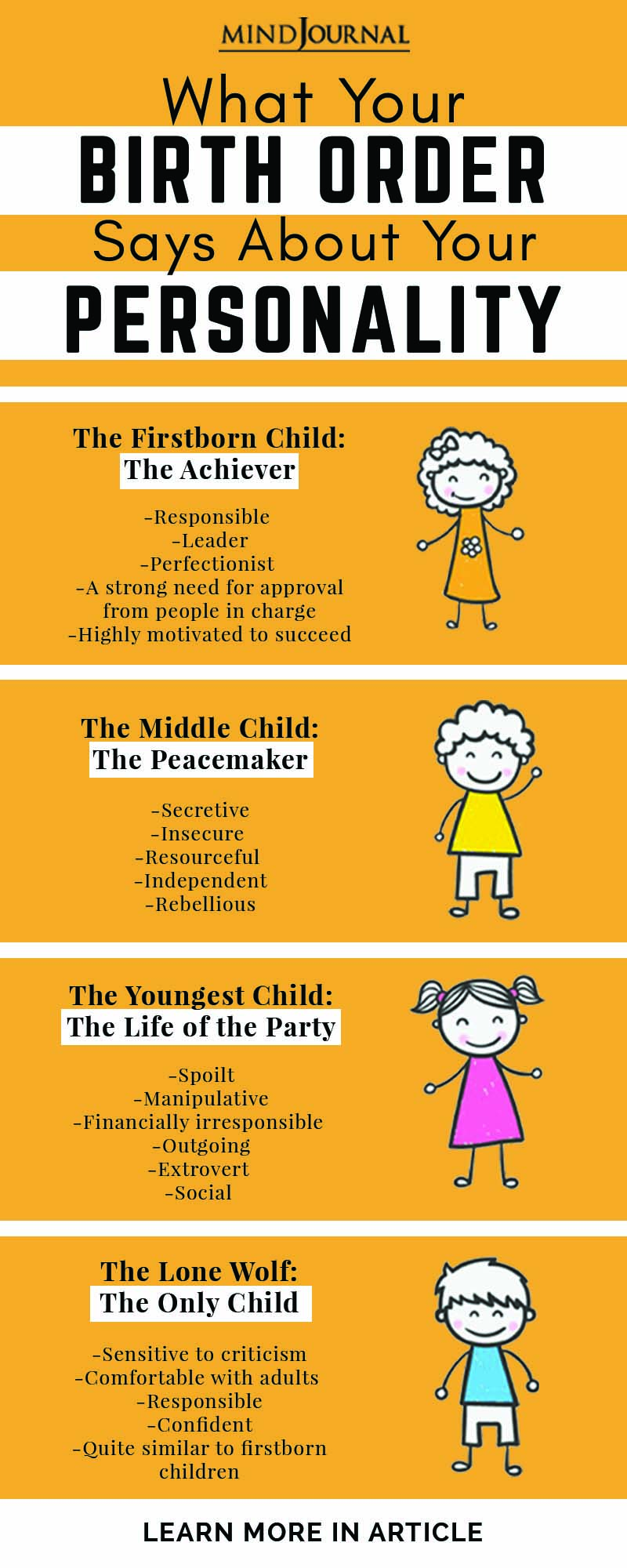
While the eldest child is programmed for excellence and achievement, the middle child is raised to be understanding and conciliatory and the baby seeks attention.
As a result, birth order is a powerful variable in the unfolding of your personality.
1. The Firstborn Child: The Achiever
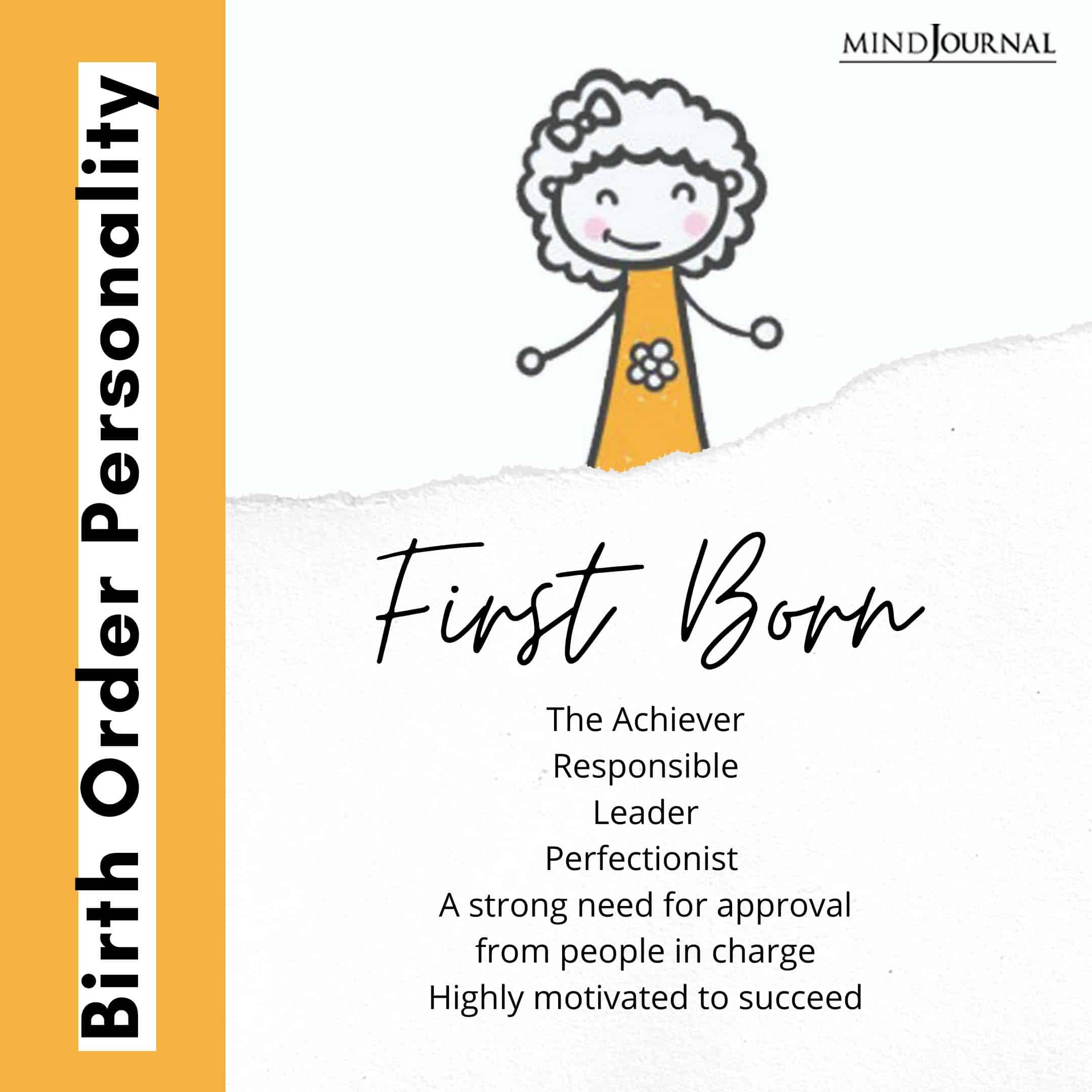
Key personality traits: Responsible, leader, perfectionist, a strong need for approval from people in charge, highly motivated to succeed.
The eldest child will probably have more in common with other firstborns than their own brothers and sisters. Because they have had so much control and attention from their first-time parents, they are over-responsible, reliable, well-behaved, careful, and smaller versions of their own parents.
If you are a firstborn, you are probably a high achiever who seeks approval, dominates, and is that perfectionist who uses up all of the oxygen in the room. You can be found in a leadership career such as law, medicine, or as a CEO.
As a mini-parent, you try to dominate your sibs. The problem is that when baby number two arrives, you will also experience a sense of loss.
By losing your seat on the familial throne, you also lose the special place that singularity holds. All of the attention that was exclusively yours must now be shared by you and your sibling.
2. The Middle Child: The Peacemaker
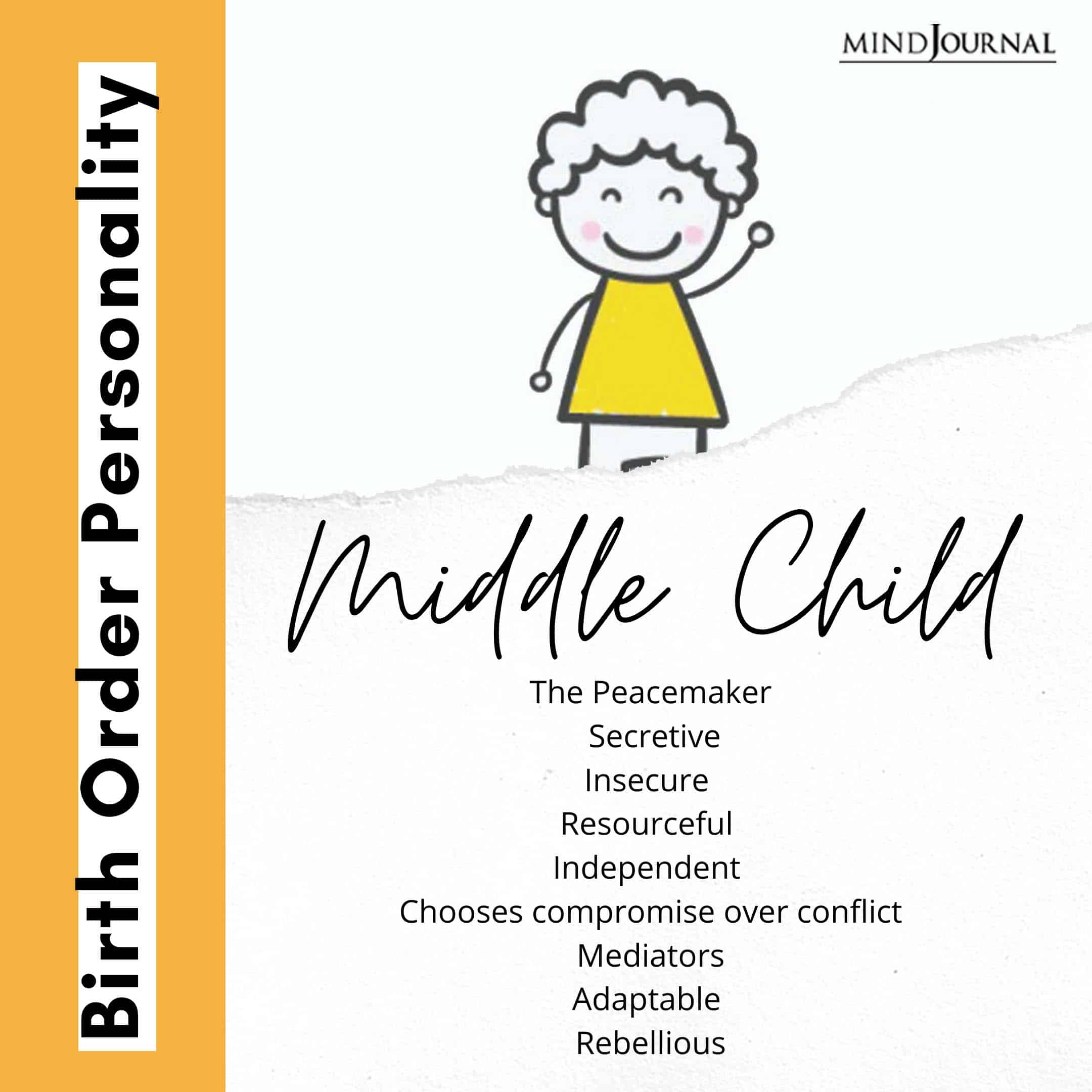
Key personality traits: Secretive, insecure, resourceful, independent, chooses compromise over conflict, mediators, adaptable, rebellious.
If you are a middle child, you are probably understanding, cooperative, and flexible, yet competitive. You are concerned with fairness. In fact, as a middle child, you are likely to pick an intimate circle of friends to represent your extended family. It is here that you will find the attention likely lacking in your family of origin.
As a middle child, you receive the least amount of attention from family and as a result, this family of your choice is your compensation.
As a middle child, you’re in very good company with notable U.S. Presidents and celebrities such as Abraham Lincoln, John F. Kennedy, Winston Churchill, Bill Gates, Donald Trump, and Steve Forbes. Though often a late bloomer, you find yourself in power careers that allow you to use your negotiating skills… and get that all too-needed attention.
You and your older sibling will never excel at the same thing. The personality trait that defines you as a middle child will be the opposite of that of your eldest and youngest sibling. But those wonderful social skills that you have learned as the middle child — negotiating and navigating within your family structure — can prepare you for an entrepreneurial role on a large scene.
Related: 12 Reasons Why The Middle Child Is Always Likeable
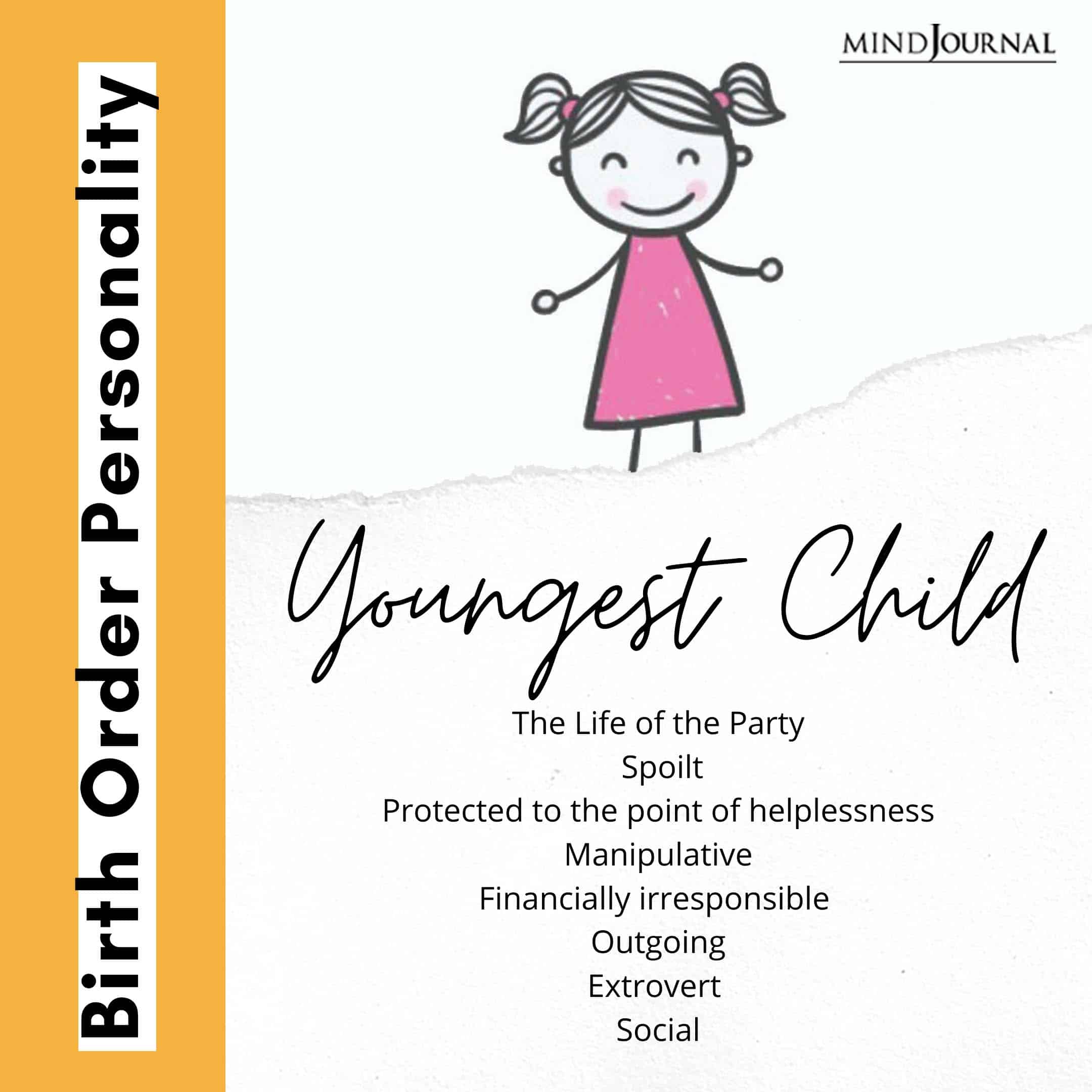
Key personality traits: Spoilt, protected to the point of helplessness, manipulative, financially irresponsible, outgoing, extrovert, social.
If you’re the baby, your parents are already confident in their role as caregivers, and therefore are more lenient and don’t necessarily pay attention to your every move or milestone as they did with your older siblings. Thus, you’ve learned how to seduce the crowd with charm and likability.
As the youngest child, you have more freedom than the other siblings and, in a sense, are more independent. As the youngest child, you also have a lot in common with your oldest sibling, as both of you have been made to feel special and entitled. Your range of influence extends throughout your family, which supports you both emotionally and physically. Hence, you experience a sense of place and security.
It probably won’t surprise you to note that youngest children often find careers in the entertainment business as actors, comedians, writers, directors and so on. They also make good doctors and teachers.
Because your parents were more laid back and lenient, you expect the freedom to follow your own path in a creative style. And as the baby of the family, you’ve had less responsibility, and therefore don’t attract responsible experiences.
Related: Permissive Parenting Style: Why It’s Bad For You and Your Child?
4. The Lone Wolf: The Only Child
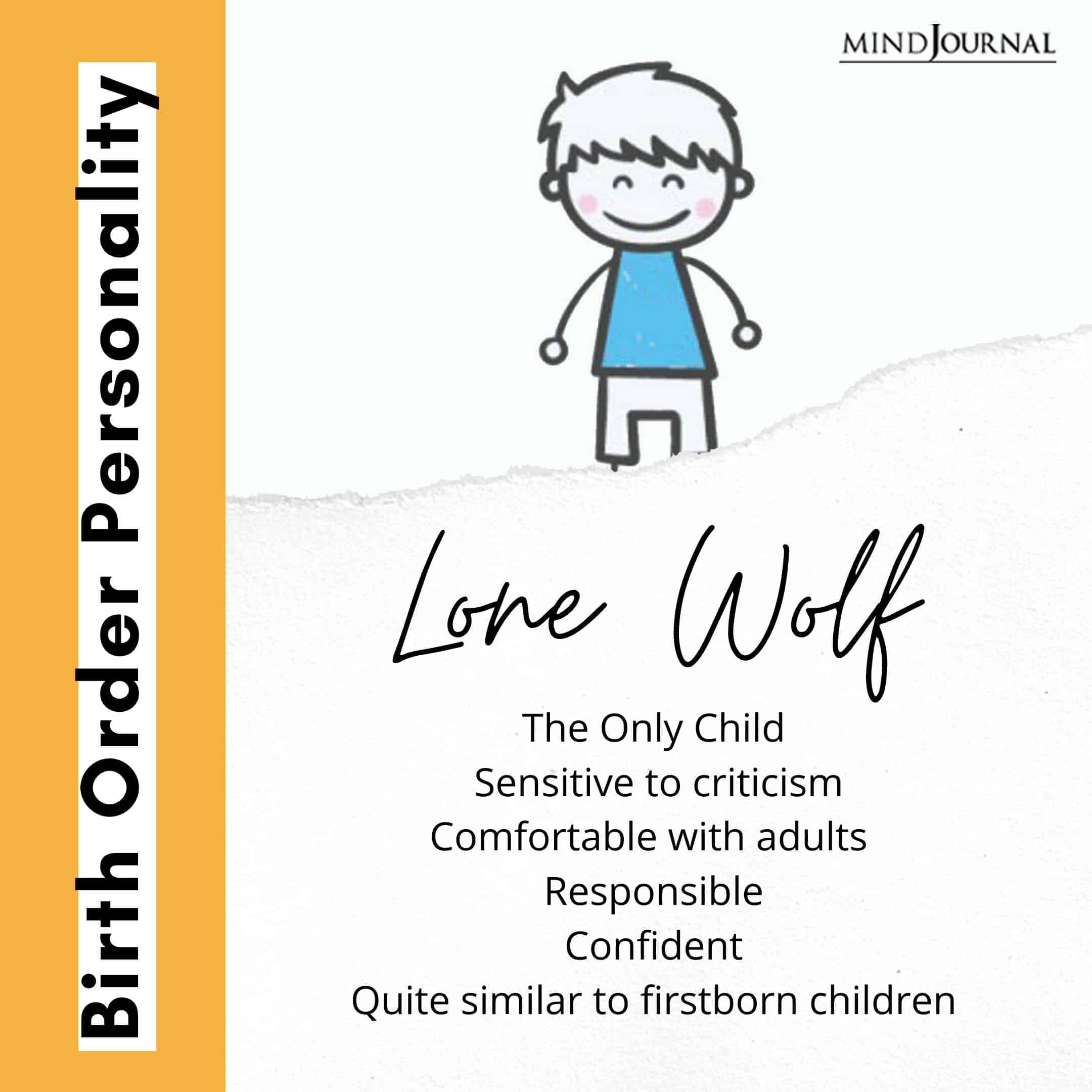
Key personality traits: Sensitive to criticism, comfortable with adults, responsible, confident, quite similar to firstborn children.
If you’re an only child, you grow up surrounded by adults, and therefore are more verbal and often more mature. This allows for gains in intelligence that exceed other birth order differences.
Having spent so much time alone, you are resourceful, creative, and confident in your independence. If you’re an only child, you actually have a lot in common with those who are firstborns, as well as those who are the youngest in their families.
Parents: Know Your Child
In the final analysis, for parents, it is important to know your child. Even more important than birth order is creating an environment that is positive, safe, healthy and stimulating. By understanding your particular child’s personality and temperament, you can organize their environment to bring them toward their fullest potential.
For example, understanding that a first-born child feels highly responsible allows you to lighten their load, and recognizing that the baby of the family is experiencing a more lenient environment can help you be more diligent in your discipline.
Children need to be allowed to find their destiny, whatever their role in the family may be, and as a parent, your most important job is to support their individual journey.
Want to know more about your birth order traits and how birth order affects your personality? Check this video out below!
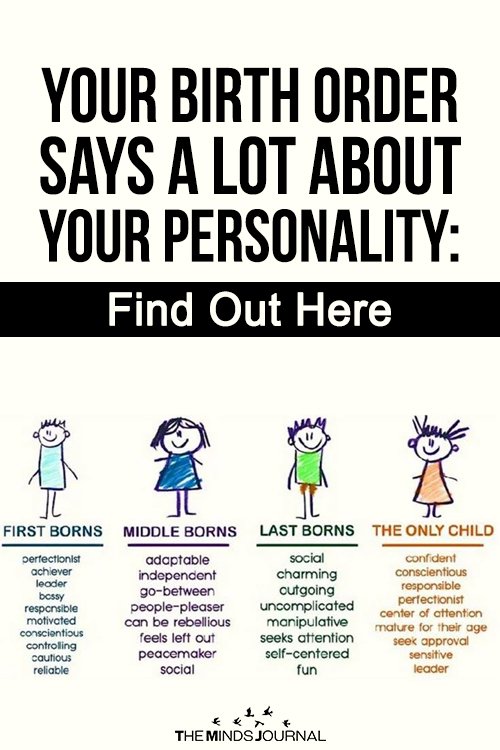
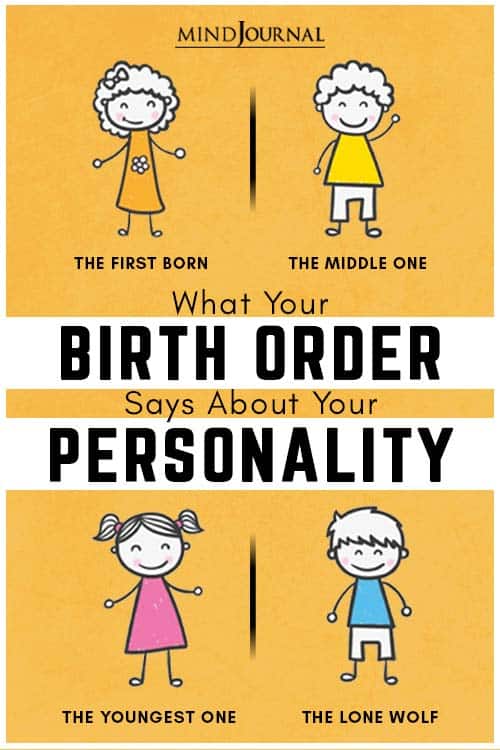

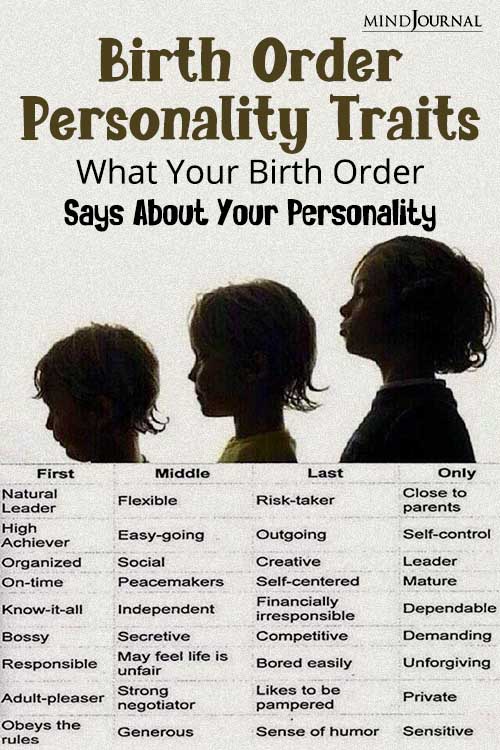
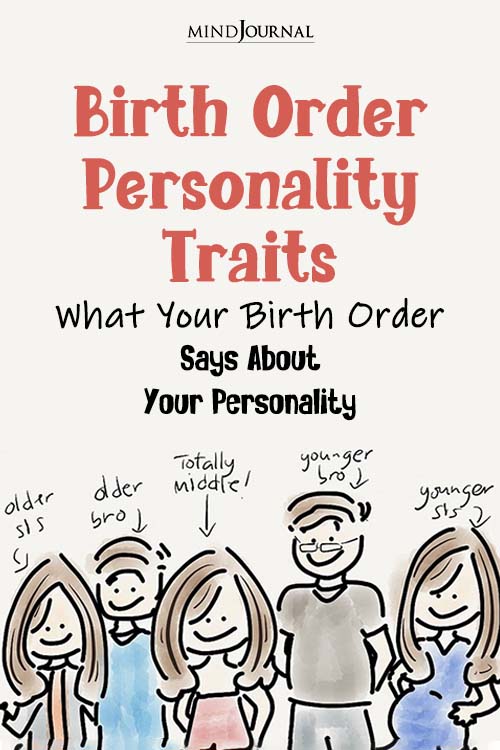

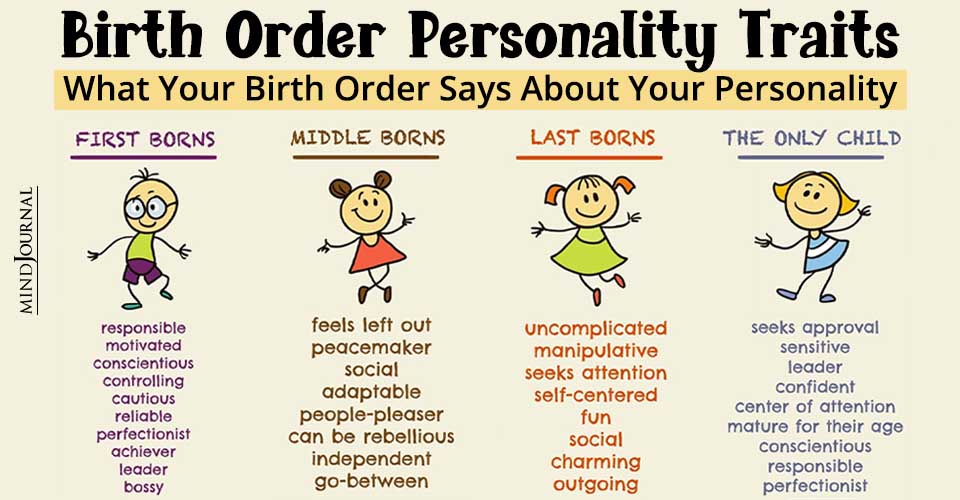







Leave a Reply